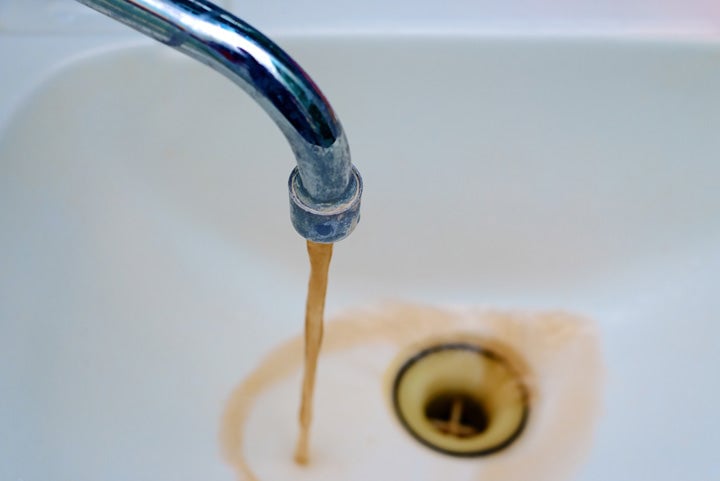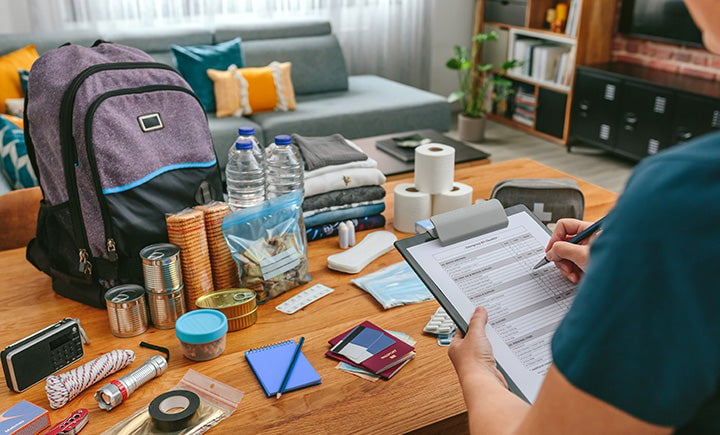
As a mom, I do all I can to be prepared.
I have written countless Survival Scout articles about the importance of preparedness, but, recently, I discovered that my own family’s preparedness plan was lacking.
We have a lot of gear.
We have plenty of emergency food.
And we have tons of know-how.
The issue is…we lack experience.
My crew has been fortunate not to have experienced true emergencies.
Sure, the power has gone out, but it comes on.
We made it through 2020 unscathed.
But I started to wonder if things really hit the fan, would my family truly have what we needed to survive?
I decided to put our know-how and our gear to the ultimate test.
I planned a full at-home survival weekend.
No power, no tap water, no internet – just our survival supplies, our skills, and our mindsets.
I chose to do the 72-hour survival test because it’s an easy way to test yourself – and because the first 3 days following a crisis are the most critical.
During the first 72 hours after an emergency, you WILL be on your own.

Electricity and water may not work.
Public safety services, such as first responders, may not be able to reach you.
Basic infrastructure may not function properly.
Our 72-hour survival test proved to be a worthwhile learning experience.
You see, prepping isn’t about shoving food and gear into a closet and hoping for the best – it’s about testing your gear, refining your plan, and uncovering your weak spots before a real crisis hits.
After the 72-hour survival test, I feel much more prepared for the real thing – even better, we had fun!
Use today’s Survival Scout to plan a 72-hour survival test weekend for your family this summer.
Get the Basics
Start with the basic preparedness gear.
Make sure you have all the following:
- Water: one gallon per person, per day.
- Food: non-perishable, easy-to-prepare items
- Flashlight
- Extra batteries
- First aid kit
- Medications
- Multi-purpose tool
- Sanitation and personal hygiene items
- Copies of personal documents
- Cell phones with chargers
- Extra cash (small bills and coins)
- Hand-crank weather radio
- Baby supplies
- Pet supplies
- Manual can opener
- Games and activities
- Matches
- Duct tape
- Tool kit
- Trash hags

Now, as you go through the 72-hour survival test, you will quickly discover this is not an exhaustive list.
What your family will need depends on a variety of factors, including your family’s unique qualities, your location, and the type of emergency event.
But it is critical that you begin your survival weekend with at least this gear.
Note – My Patriot Supply offers a 72-Hour Kit Sample Pack, which provides 4 different food varieties and 20 servings of storable food for one person averaging 2,000+ calories per day. This is an excellent way to test long-term emergency food to see how it is cooked and how it tastes – and to consider what other long-term emergency food you may need to supplement and differentiate your meals. Grab one for each family member for your 72-hour survival test.
For more on prepping, check out this article on Micro-Prepping: How to Build a 72-Hour Survival Plan in One Weekend.
Don’t Forget These Necessities
As I emphasized above, the list of basics is not exhaustive.
We found several holes in our plan when we started walking through how we would survive the weekend with no power, no water, and no internet.
- How would we get clean water?
- How would we cook?
- How would we clean?
- How would we handle sanitation, such as going to the bathroom?
These tend to be the most common holes in preparedness plans, so give them some consideration before you begin your big adventure.
Plan Your 72-Hour Survival Test
We decided on a full weekend and marked it on the calendar.
We collected our supplies and put them where we could access them easily (which should be done anyway).
Then, we talked to our kids about the importance of the weekend.
We told them the rules (i.e., no power/no internet) and included them in the planning,
As a family, we talked through the above questions about the common holes in planning.
This is what we came up with.
How would we get clean water?
We used an Emergency Water Bank by Alexapure to store 65 gallons of water in one of our bathtubs.
How would we cook?
We have a Vesta Self-Powered Indoor Space Heater and Stove. We decided this was the perfect time to put it to the test using our long-term emergency food and stored water. The stove works using canned heat, which came with the product. We ordered some additional canned heat to be safe.
How would we clean?
We added dish soap and liquid bleach to our supplies. We planned to use our stored water to clean.
How would we handle sanitation, such as going to the bathroom?
This was the tricky one. My sons loved the idea of being able to pee outdoors, but when it came to #2, we were all a little unsure. We opted for using a camp toilet and then a burn barrel for waste.
Test Your Gear
When the 72-hour survival test takes place, this is a perfect time to test your survival gear – even if you don’t need it.
You may not go fishing over the weekend, but you can still take your emergency fishing kit out and see how it works.
During your time together, spend time learning how to use different emergency supplies you have, such as how to cook long-term emergency food, use fire starters, and solar-powered weather radios.
Also, use the time to prepare for different types of emergencies.
For example, have your family run through your plan for a tornado, a flood, or civil unrest.
And test your survival skills. Use this weekend to teach your family members how to signal for help, build a fire, and be a grey man.
Refine Your Plan
The goal of the 72-hour survival test is to see how prepared you and your family are for a true emergency.
It involves putting yourself in uncomfortable situations and seeing how well you fare.
It is an opportunity to see how different members of your family react in these situations, identifying strengths and weaknesses.
Ultimately, it is a fun way to see what you may have overlooked in your planning, what you can do to improve, and what you need to spend more time learning.
Have open discussions about the situation, take notes, and journal about the experience.
Have fun, learn, and prepare, friends.
In liberty,
Elizabeth Anderson
Preparedness Advisor, My Patriot Supply






